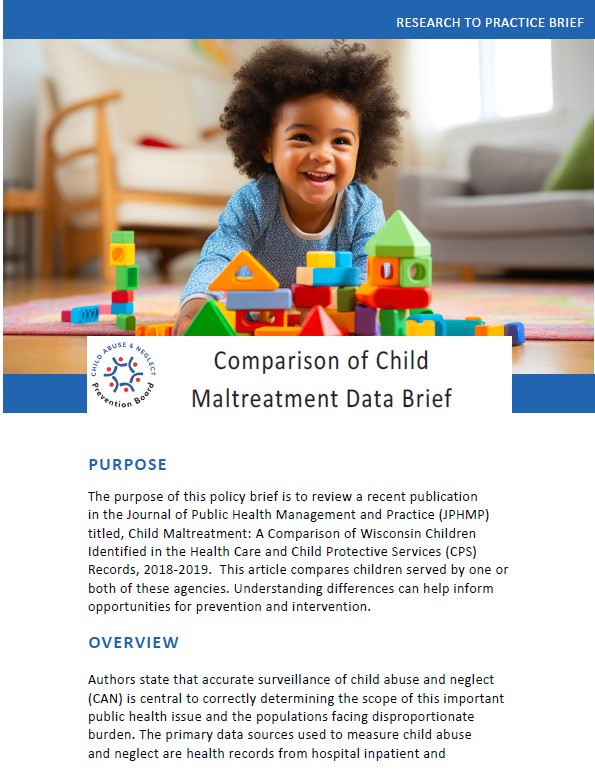

The purpose of this policy brief is to review a Positive Childhood Experiences:
recent publication in the Journal of Public Health are experiences in childhood that build
Management and Practice (JPHMP) titled, a child's sense of belongingness and connection.
Child Maltreatment: A Comparison of Wisconsin Although the research on PCEs is still in early
Children Identified in the Health Care and Child in early stages, the findings are very promising
Protective Services (CPS) Records, 2018-2019. and warrant intentional efforts designed to
This article compares children served by one or disseminate understanding of the role of
both of these agencies. Understanding differences PCEs as well as specific efforts to support the
can help inform opportunities for prevention and actual development of PCEs among children
intervention. and youth.
 PCE
PCE